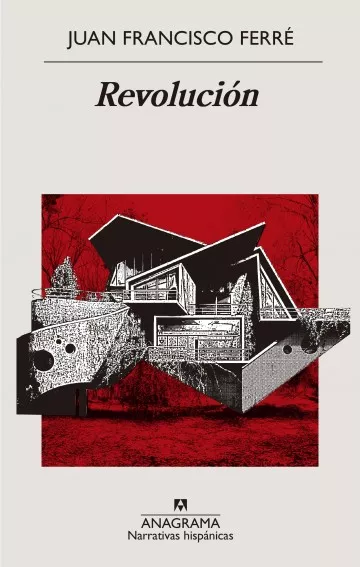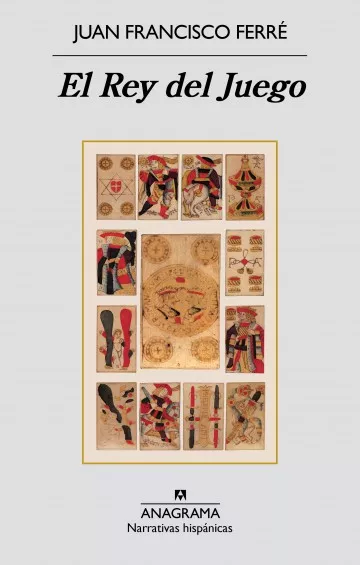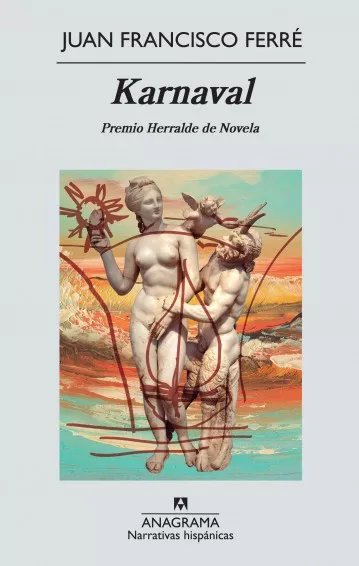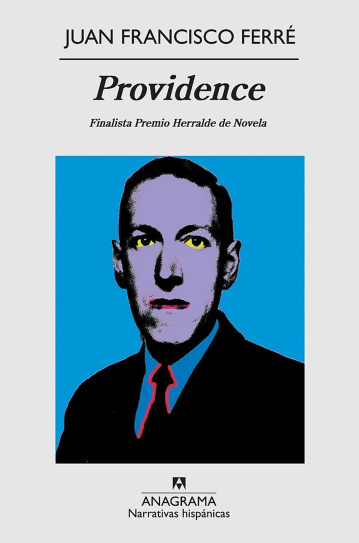| PAGES | 368 |
| SERIES | Narrativas hispánicas |
| PUBLICATION | 14/05/2019 |

SERIES:Narrativas hispánicas
33 chapters. 33 days narrated by Gabriel Espinosa in first person. 33 stages of a descent—or perhaps an ascent—into madness or into complete lucidity, on a path that goes from “Boredom. Unsatisfied desires.” to “The future. The time for absolute freedom. The time for revolution.”
Espinosa, a researcher at a university, performs peculiar experiments for which he recruits women on the street and asks them to tell him their erotic fantasies. He is married to Ariana, whom he suspects—with good reason—is cheating on him. And he has three kids: two biological children, twins Sofía and Pablo, and a third, the adopted and gifted Aníbal. The latter shows an unusual fascination for watching a Californian transsexual on the internet and following the agony of a hedgehog through the videos posted by his heartless torturers.
As the days pass, the mundane starts to become hallucinatory and schizophrenic: Aníbal disappears, perhaps kidnapped by a pedophilic sect obsessed with gifted children, and a diverse cast of bizarre characters begin to appear—such as Freddy the Faun or Doctor Drax, a (divine?) entity called Madre or Abraxas—while human sacrifices and reincarnations are produced in the shape of a…hedgehog.
Revolución is an insurrectionary, transgressive, provocative, naughty, lysergic, esoteric, mystical, pornographic, disturbed, and above all resounding novel. Narrative gears that flow with a frenetic and ecstatic rhythm and that function with the precise logic of delirium. A dazzling literary adventure that traps the reader within the seductive and perverse webs of fiction.
"A certain intriguing suspense and a successful sense of humor are what complete the excellence of this original and elaborate novel." (Jesús Ferrer, La Razón).
"Aside from being a narrator gifted with an amphetamine imagination, Ferré is a precise and malevolently intelligent author." (Pablo Martínez Zarracina, El Correo Vasco).
"He is likely the most intellectually ambitious author we have in Spain." (Iñaki Ezquerra, El Correo Español).
"Juan Francisco Ferré tears apart the fabric of contemporary Spanish narrative." (Xavi Ayén, La Vanguardia).
| PAGES | 368 |
| SERIES | Narrativas hispánicas |
| PUBLICATION | 14/05/2019 |


Juan Francisco Ferré (Malaga, 1962), has published the collection of stories Metamorfosis (2006) and the novels Return to the World (2002), I Love You Sade (2003), and Party for the Dimwit (2005; translated into French in 2012). His novel Providence(Finalist for the Herralde Prize 2009) achieved a rare and splendid critical unanimity, just as much for the Spanish version as it did for the French: “As well as being a narrator gifted with an imagination on amphetamines, Ferré is a precise and malevolently intelligent writer”. (Pablo Martínez Zarracina, El Correo Vasco), “An arteface that demystifies the new virtual reality. With an agile literary tongue: At once both malicious and full of this icy irony that Nabokov displayed. A novel that encapsulates the alienation of a new kind, infinitely more lethal than Marx could have ever imagined.” (J.E. Ayala Dip); “It deals a heavy blow to the “American Way of Life” with its groundbreaking plot: Providenceexposes America’s most feverish side.” (Juan Antonio Masoliver Ródenas, La Vanguardia); “A mutant daughter of Pynchon and Foster Wallace, the novel appears to be a work of an intellectual thug with a desire to fight (ideological)” (Jordi Costa, El País); “A foreign revelation of a comeback, Juan Fransisco Ferré has launched a postmodern bomb towards the world of the book. A name to watch” (Les Inrockuptibles); “It is a novel-monster, post-modern up to the diabolical… a sort of Ulysses of the digital era” (Bernard Quiriny, MK2); “The most successful attempt to express our contemporary experience” (Gladys Marivat, Tehnikart).





